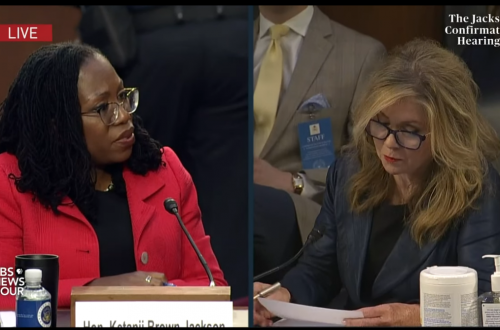Michael Gerson has two essays this week excoriating evangelicals for their support of President Trump—one long piece in The Atlantic and another shorter piece in The Washington Post. His basic thesis is that evangelical Trump supporters have discredited their Christian witness. Indeed, they have abandoned it altogether. In the longer piece for The Atlantic, Gerson writes:
The moral convictions of many evangelical leaders have become a function of their partisan identification. This is not mere gullibility; it is utter corruption. Blinded by political tribalism and hatred for their political opponents, these leaders can’t see how they are undermining the causes to which they once dedicated their lives. Little remains of a distinctly Christian public witness…
How did something so important and admirable become so disgraced?
Gerson follows this with a deep dive into the history of North American evangelicalism, with a special emphasis on all of its triumphs and failures over the years. He writes,
It is the story of how an influential and culturally confident religious movement became a marginalized and anxious minority seeking political protection under the wing of a man such as Trump, the least traditionally Christian figure—in temperament, behavior, and evident belief—to assume the presidency in living memory.
I won’t attempt to sketch the whole essay here. I simply encourage you to read it.
I am sympathetic with much of what Gerson writes in this essay. In fact, I’m fairly certain that we share the same point of view about the current president and his moral corruption. Having said that, I think Gerson’s essay is problematic for several reasons.
1. Gerson views gay marriage and its acceptance among “evangelicals” as progress. He thinks that the younger evangelical embrace of gay marriage is a sign of “evangelical recovery.” Gerson’s support for homosexual immorality seriously undermines an essay that purports to explain what is essential to Christian faith and witness in the public square. Gerson simply doesn’t understand what Christianity is if he thinks sexual immorality constitutes “evangelical recovery.” And it is hardly consistent to condemn sexual immorality at the highest levels of public life while excusing it elsewhere. Nevertheless, that is precisely what Gerson does by endorsing gay marriage in this way.
2. Gerson says that evangelical rejection of Darwinianism has discredited the Christian faith in the eyes of the world. He attributes the rejection to anti-intellectualism that has infected the movement ever since the Scopes Monkey Trial in the early twentieth century. The problem with this contention is that Gerson writes as if evangelicals have said nothing particularly important on the subject since the Scopes Monkey trial—as if he is unaware of all the thoughtful evangelical reflection on evolutionary theory since Scopes. And yet, Gerson contends that anti-Darwinian evangelicals are “stumbling blocks” to people who might otherwise become Christians. This is not a helpful take on the issue, nor is it fair to serious-minded evangelicals who reject Darwinianism, nor does it show any comprehension of the serious incompatibility of creationism and mainstream evolutionary theory.
3. There is little nuance in Gerson’s understanding of Trump supporters. For Gerson, Trump support is a test of orthodoxy. Anyone who voted for Trump has joined the heresy and has earned their condemnation. The Atlantic Essay essay in particular suggests that Trump supporters en masse have virtually abandoned the faith. Because of that, he gives little consideration to how awful the alternative was in 2016 and how many evangelicals held their nose to vote for Trump. It’s as if the only evangelical Trump supporters that Gerson acknowledges are the hucksters that he sees on cable news. I do not deny that there are “evangelicals” despicably defending the indefensible, and I share in Gerson’s contempt for that unfaithfulness. Nevertheless (I speak anecdotally here) I know many people who voted for Trump in 2016 who only did so because of the poor alternatives before them and who nevertheless speak with clarity about his moral corruption. I disagree with their calculation in the last election, but I don’t think it makes them into the moral monsters that Gerson’s Atlantic essay suggests. Such evangelicals may not be on cable news, but they are out there. He should get to know them and why they felt so desperate in the last presidential election. As David French writes, “[Gerson] understates the justification for Evangelical support for Trump and exaggerates rank-and-file Evangelical perfidy.”
4. Gerson discredits evangelicals for being reactionary. He cites our opposition to Roe v. Wade and resistance to the sexual revolution as examples of that. He writes,
The evangelical political agenda, moreover, has been narrowed by its supremely reactive nature. Rather than choosing their own agendas, evangelicals have been pulled into a series of social and political debates started by others. Why the asinine issue of spiritually barren prayer in public schools? Because of Justice Hugo Black’s 1962 opinion rendering it unconstitutional. Why such an effort-wasting emphasis on a constitutional amendment to end abortion, which will never pass? Because in 1973 Justice Harry Blackmun located the right to abortion in the constitutional penumbra. Why the current emphasis on religious liberty? Because the 2015 Obergefell v. Hodges decision legalizing same-sex marriage has raised fears of coercion.
In this way, Gerson denigrates evangelical concerns about government “coercion.” Does he not remember how the Obama administration sought to force nuns to provide contraceptives through their insurance plans? Does he not remember how the state of Washington has been trying to force a grandmother and owner of a florist to participate in a gay wedding? Has he forgotten about the owner of Masterpiece Cakeshop in Colorado who is being forced to participate in a gay wedding against his conscience? That last one is still pending at the Supreme Court. These are not made-up stories. They are really happening, and they are really serious. It’s not fearful and alarmist to state the obvious.
Also, what great Christian movements haven’t been perceived as “reactionary” against the great evils of their day? Nicene Trinitarianism was a reaction against Arianism. The Reformation was a reaction to the excesses of late medieval Catholicism. Evangelicalism itself was a reaction against insular fundamentalism. For all their faults, evangelical reaction against abortion and sexual immorality is not a sign of corruption but of faithfulness. Is Gerson suggesting otherwise? It kind of seems like he is. I would argue that evangelicalism is in a period of status confessionis on issues related to sexuality. The differences among “evangelicals” on these issues really are that fundamental. But I don’t think Gerson sees it that way.
There’s a reason that we refer to the church in the world as the “church militant.” The world is never going to look on us as the “church of salutatory and constructive policy proposals.” The church cannot be faithful unless it is in some degree “reactionary” to the great evils of the day, and that is never going to be received well by those who resist Christ’s kingdom. Gerson seems to think that if Evangelicals had just embraced Darwinism, then we would not have had so many detractors over the years. Again, I think this is a misunderstanding of the Christian faith (John 15:18-19). And it may be at the heart of what is wrong with Gerson’s essay.



